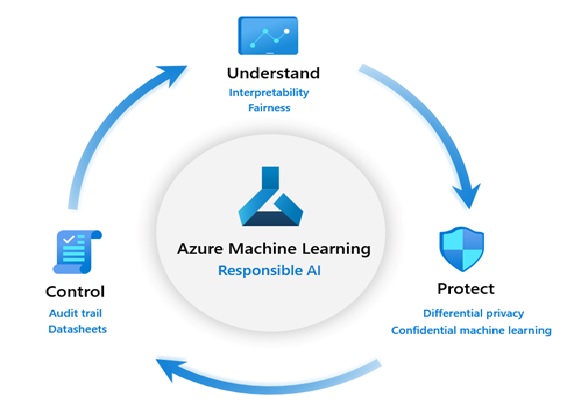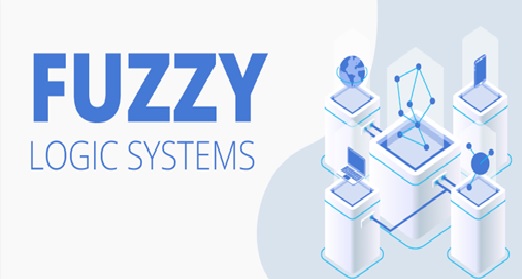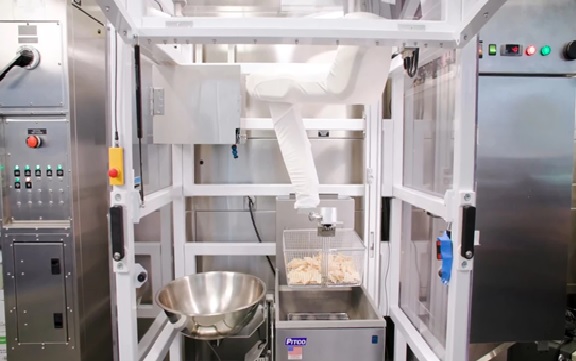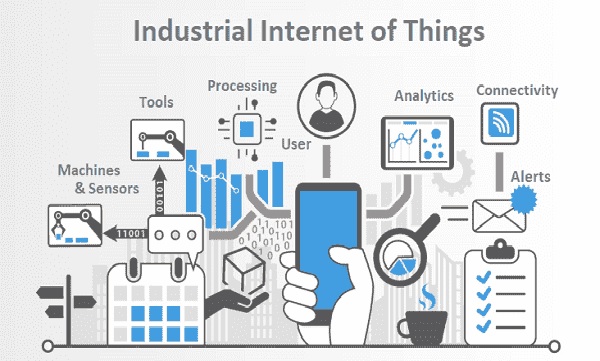Advanced AI modelling with Azure Machine Learning
Azure Machine Learning is a cloud service for accelerating and managing the machine learning project lifecycle. Machine learning professionals, data scientists, and engineers can use it in their day-to-day workflows: Train and deploy models, and manage MLOps.
Azure Machine Learning is for individuals and teams implementing MLOps within their organization to bring machine learning models into production in a secure and auditable production environment. [3]

Figure 1. Advanced AI modelling with Azure Machine Learning
Figure 1 shows Azure Machine Learning (AML) is a low-code toolset that enables users to build entire data models, machine learning algorithms, pre-processing modules and more components through drag and drop gestures on an interactive design surface. You can run training experiments, examine results, link them together graphically and then deploy them to services like Power BI.
The latest Azure ML and Power BI integration empowers data scientists to more easily export their customised ML training models directly to Power BI (Premium only), helping business users take better advantage of the automated machine learning (AutoML) feature, which:
- Enables business analysts using Power BI to use their dataflows and choose the best model to drive desired outcomes
- Train their model on their data within Power BI and without needing to code anything
- Automated reporting on its performance using Power BI’s dashboard and visualisations. [2]
Key features of Azure Machine Learning:
- Drag-and-drop model designer—used to build machine learning models with no code. The designer supports several neural network architectures, including two-class classification, multi-class classification, neural network regression, DenseNet and ResNet.
- MLOps—supports a DevOps-style method for building and managing machine learning pipelines and workflows.
- Security and governance—integrated into the service, letting you verify compliance of machine learning processes, and perform identity and privacy management according to your organization’s governance policies.
- Frameworks support—supports PyTorch, TensorFlow, Keras, MXNet, scikit-learn, and Chainer. [1]
References:
- https://www.globaldots.com/resources/blog/cloud-deep-learning-aws-azure-gcp-compared/
- https://xo.xello.com.au/blog/power-bi-top-no-code-ai-and-machine-learning-features
- https://docs.microsoft.com/en-us/azure/machine-learning/overview-what-is-azure-machine-learning
Cite this article:
Thanusri swetha J (2022), Advanced AI modelling with Azure Machine Learning, AnaTechMaz, pp. 52















